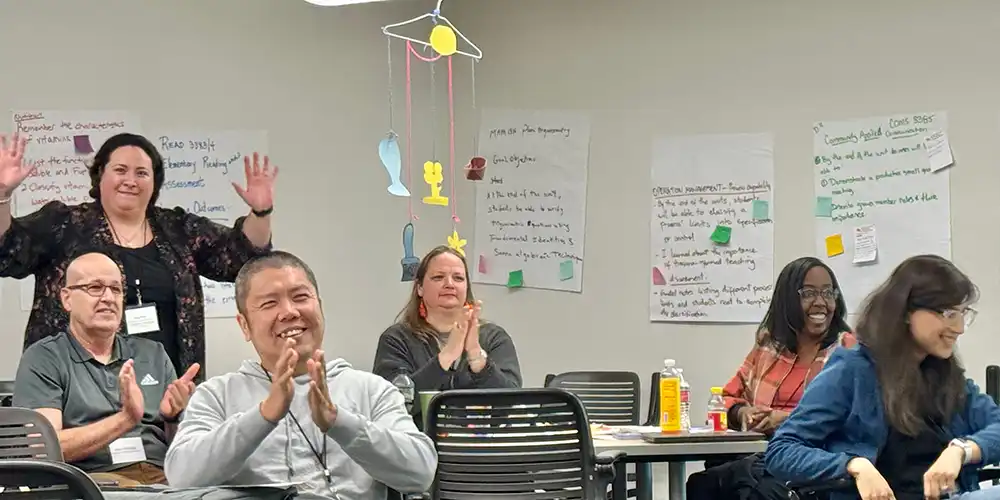TLC Programs

The TLC offers multiple programs, services and resources to support excellence in teaching. We support our instructors with cutting-edge research, education, funding, and collaboration.
TLC Programs
Choose from the options below for more details about our instructional services in the most innovative of teaching excellence techniques. We have a number of resources for instructor development.
-
ACUE Course
Learn effective teaching techniques to improve your active learning practices to achieve increased student success.
-
Engaging Exploration
Engaging Exploration is a 4-day workshop held three times each summer.
-
Mini-Engaging Exploration (Mini-EE)
Mini-EE workshops on effective teaching strategies are suggested and facilitated by members of our university community.
-
Faculty Learning Communities (FLC)
Interdisciplinary groups of 6-15 faculty/staff that collaborate to enhance teaching and learning and community-building.
-
Innovation Jams
Innovation Jams are informal 1-hour sessions dedicated to discussion of pressing topics related to teaching and learning.
-
Teaching Squares
Teaching squares are instructor groups that foster growth and self-reflection in teaching practices. Each instructor in a square will attend a class of each other group member to reflect on their own teaching, debrief and brainstorm takeaways.
-
Writing in the Disciplines (WID)
WID is about teaching students how writing works in their chosen discipline and using writing to learn.
What is Active Learning?
Active learning covers such a variety of methods that it can be hard to define. All methods, however, share a philosophical basis on the constructivist theory of learning.
This theory states that learning is an active, contextualized process of constructing a network of knowledge rather than simply acquiring information (Ertmer & Newby, 2008). The learner is not a blank slate to which facts are added, but instead an active participant in constructing their functional knowledge. The learner’s past experiences and cultural factors affect their knowledge construction. Learning environments with active experiences allows the learner to think about their own learning, enhancing their construction of knowledge, and helping to address previous misconceptions and limitations from past experiences. Therefore, the active learning pedagogical approach is influenced by the constructivist theory of learning.
Simply put, by using active learning, the learner is focused on activities that stimulate information processing, organization, and recollection. To help the instructor guide the active learning process, formative assessments are used.
What are the Benefits?
The breadth of educational literature indicating the benefits of active learning in certain disciplines is expansive. Abundant evidence from educational research and psychology of learning studies clearly demonstrates that an active approach in the classroom leads to improved student learning and academic success (Bain, 2004; Bransford, Brown, & Cocking, 2000; Brown, Roediger, & McDaniel, 2014; Kuh, 2008)
Study after study provides evidence of active learning leading to improvements in both student learning and student success. Many faculty members in several departments have already incorporated active learning into their classroom pedagogy and through the Teaching and Learning Center we hope to continue this trend.
Contact Us
Visit Us
The Teaching & Learning Center, 1901 Avenue I, The College of Humanities & Social Sciences (CHSS) Building, Suite C002, Huntsville, TX 77340
Mailing: The Teaching & Learning Center, Box 2390, Huntsville, TX 77341-2390